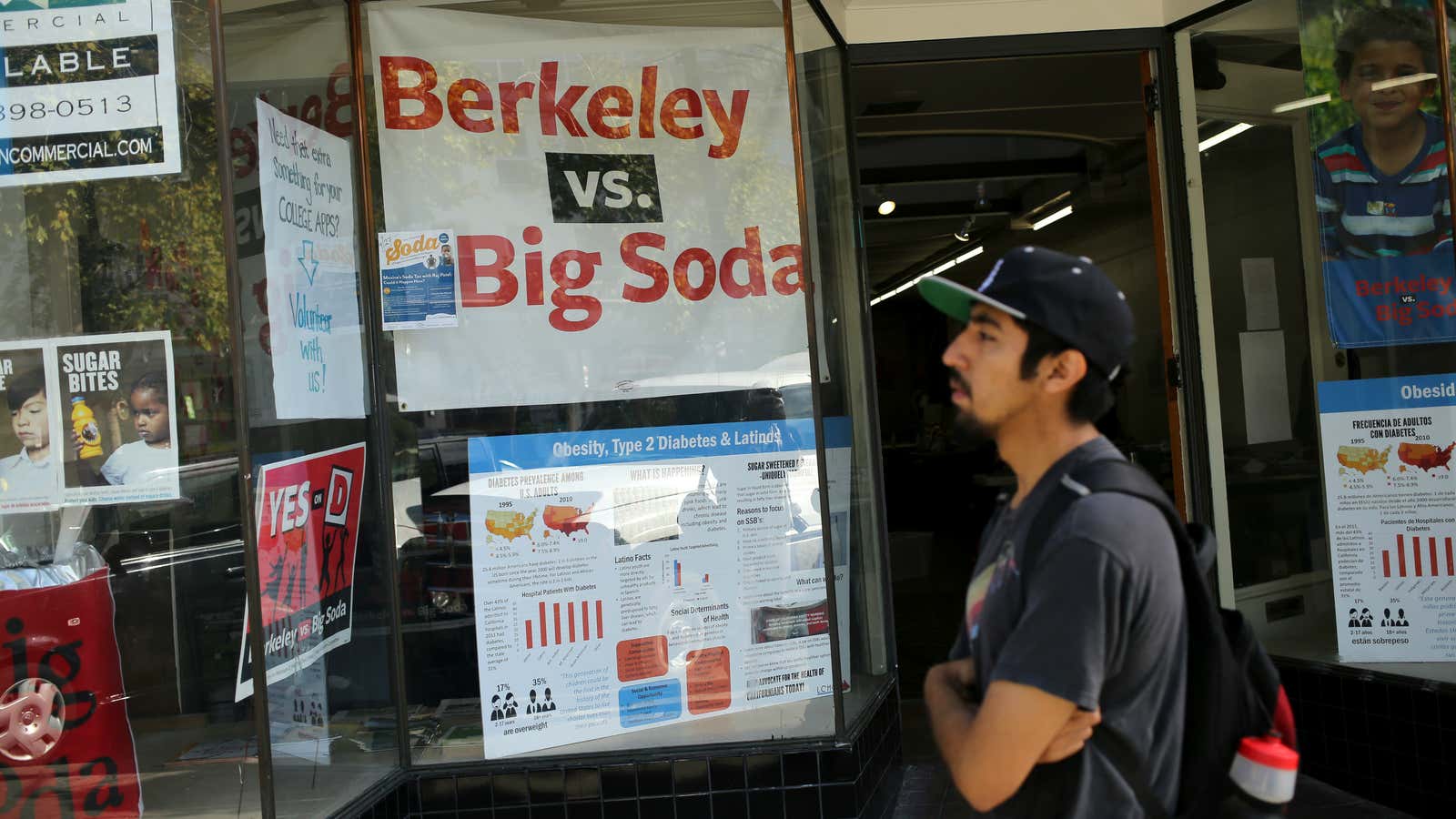The American Heart Association has some soul-crushing news for American kids.
This week the organization announced that kids should consume no more than six teaspoons (roughly 100 calories) of added sugar a day, which is less than one-third of the sugar children consume now. For some perspective, six teaspoons roughly amounts to a serving of flavored yogurt or a handful of caramel popcorn.
What’s more, children under 2 years old should avoid consuming added sugars altogether, the report said. That’s because evidence has suggested that sugar has addictive qualities, especially for young children whose taste buds are being shaped by the foods they eat. And a lot of the food they eat includes seemingly healthy products such as instant oatmeals, pasta sauce, and peanut butter—all of which can contain high sugar levels.
The recommendations stab at the heart of American health crises, including obesity, cardiovascular disease, hypertension, obesity-related cancers and dental caries. About two-thirds of people in the US are overweight and the trend is only getting worse, thanks to energy dense but nutrient-poor foods, according to the report.
While children’s health group The Robert Wood Johnson Foundation called the new guidelines a “watershed moment”, the Sugar Association said in a statement that, “The conversation around added sugars has gotten out of control and the beliefs of individuals are trumping what the scientific evidence actually shows.”
The authors of the AHA report reviewed original research, studies conducted in humans and systematic reviews through November 2015, including earlier studies referenced in the reviewed research.
The step is another blow to a sugar industry that feels under siege. Soda taxes hitting several American cities (and being considered by several others) have stirred anti-sugar sentiments similar to what the tobacco industry faced in the late 1990s. At the global level, the World Health Organization has called upon countries to embrace policies—including soda taxes—that further limit sugar consumption.
The jury is out about the effectiveness of soda taxes to change consumer behavior. But a study this week from the American Journal of Public Health—with some limitations—showed consumption of sugar-sweetened beverages fell by 21% in Berkeley since the tax was enacted.
